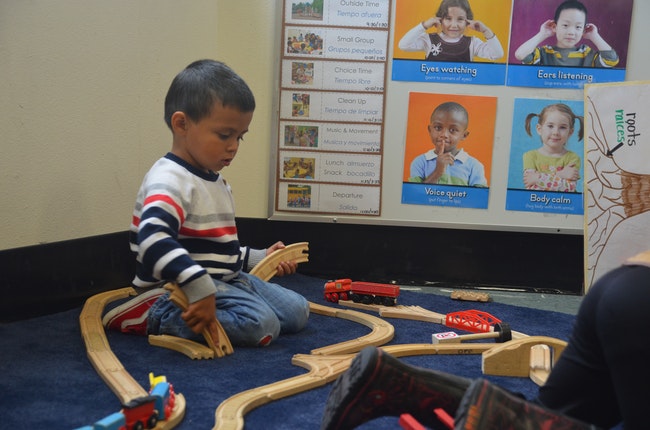Public funding to boost early child care options in Oregon has grown by millions during the past few years, but options are still limited for many parents who are forced to choose – and lose – jobs, according to a survey from Portland State University.
More than 40% of parents said they or their partner had quit a job, not taken a job or “greatly changed” a job because of difficulty finding child care the previous year. The percentage was slightly higher for parents of color.
The survey, taken by more than 3,000 Oregon parents between December 2022 and January 2023, revealed that major challenges still exist when it comes to finding child care for kids 5 and younger. The survey was conducted by Portland State’s Early Childhood program and recently submitted to the Oregon Department of Early Learning and Care and the Early Learning Council. The findings will help the agency with legislative and budget priorities in the next year, it said in a release.
Among the problems the survey found are limited spots, few options with hours that fit parents’ work schedules and high prices. Finding child care was particularly difficult for parents of kids with learning disabilities, for children of color and for families that primarily speak a language other than English at home.
Kids of color and those with disabilities were the most likely to have been asked to take a break from facilities or asked to leave a child care center in 2022. That year 10% of all children were asked to take a break or leave. That rate increased to 16% for Black children, a fourfold increase compared to 2020.
“Parents of color are among those most likely to experience those negative impacts on employment, too,” said Katherine Pears, research scientist at the nonprofit Oregon Social Learning Center, which partnered with Portland State on the study. “So, you’re really talking then about the most vulnerable families getting kind of a double whammy there.”
Pears said improving child care access and affordability will require expanding the workforce through professional training and development and paying child care staff statewide livable wages.
“The 0 to 5 brain is doing these amazing things, and we don’t confer dignity on the people that are helping that brain develop,” she said.
Through the 2019 Student Success Act, the state has spent more than $35 million increasing slots for infants and toddlers statewide, but she said more than funding is needed to improve access to child care.
“If employers want staff, and they want folks who can do jobs well, and drive the economy, then employers need to get involved in helping folks have good child care,” she said.
Oregon Capital Chronicle is part of States Newsroom, a network of news bureaus supported by grants and a coalition of donors as a 501c(3) public charity. Oregon Capital Chronicle maintains editorial independence. Contact Editor Lynne Terry for questions: [email protected]. Follow Oregon Capital Chronicle on Facebook and Twitter.
STORY TIP OR IDEA? Send an email to Salem Reporter’s news team: [email protected].

Alex Baumhardt has been a national radio producer focusing on education for American Public Media since 2017. She has reported from the Arctic to the Antarctic for national and international media, and from Minnesota and Oregon for The Washington Post. She previously worked in Iceland and Qatar and was a Fulbright scholar in Spain where she earned a master's degree in digital media. She's been a kayaking guide in Alaska, farmed on four continents and worked the night shift at several bakeries to support her reporting along the way.









